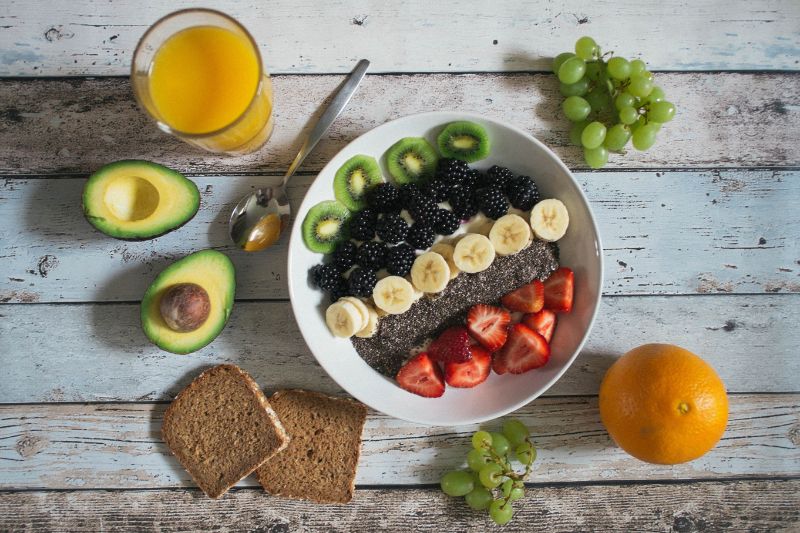No products in the cart.
What Is the Best Source of Magnesium for The Body?

Given all the magnesium nutrients our bodies need, it’s little wonder that we have to consume certain levels of minerals daily for our bodily systems to function normally. These minerals are like a supporting cast taking care of issues behind the scenes to ensure ‘the show’ goes as planned. And when our bodies are out of whack, the deficiency of one or a combination of minerals is often to blame.
Thus, you may want to buy magnesium supplements as an addition to your diet. And while food is usually the main source of minerals we need, what would you consider the best magnesium source for your body? Let’s say the opinion is divided: some people claim that a good diet is the ideal source of magnesium, while others argue in favor of supplements.
We believe that nothing beats food as a source of magnesium. To that end, here’s our list of the best food sources of magnesium, based on the amount of the mineral they contain:
- Green Leafy Vegetables
Head over to your local grocery store’s produce aisle if you need a healthy way to get more magnesium. Vegetables such as spinach, Swiss chard, and mustard greens are all excellent sources. Case in point, a cupful of cooked spinach contains 155 mg of magnesium, accounting for about 40% of your recommended daily intake(RDI). RDI is the amount of each nutrient you need to consume daily to maintain optimal health.
These vegetables have a low caloric content and are high in vitamins, minerals, and fiber. In addition, they boast various health benefits, such as reducing the risk of heart disease and cancer. So, indulge in these nutrient-rich vegetables to do your body a world of good.
- Pumpkin Seeds
Pumpkin seeds are a popular Fall treat, but they also offer a variety of health benefits. One key nutrient found in pumpkin seeds is magnesium. This mineral is essential for maintaining a healthy heart and bones and can help regulate blood sugar levels.
Plus, magnesium plays a role in muscle function and nerve transmission. Because of these core functions, magnesium deficiency can lead to various health problems. However, by including pumpkin seeds in your diet, you can help ensure your body gets the minerals it needs.
In fact, an ounce of pumpkin seeds contains a whopping 150 mg of magnesium! So next time you’re carving a pumpkin, save the seeds.
- Chia Seeds
Despite their tiny size, chia seeds are packed with nutrients, making them great for your overall health. For example, they can promote digestive regularity.
Chia seeds are also rich in fiber, antioxidants, and protein. In addition to magnesium, they contain calcium, phosphorus, and manganese. These nutrients help maintain a healthy body. For perspective, an ounce of chia offers about 95 mg of magnesium. Thus, if you’re researching a nutritious way to boost your magnesium intake, add some chia seeds to your diet.
- Nuts
Nuts such as almonds, pistachios, and brazil nuts are all excellent sources of magnesium. They also contain fiber and protein, making them a perfect snack if you want to build muscle or lose weight. For instance, 28gms (1oz.) of cashews provides 82 mg of magnesium, roughly a fifth of your RDI.
Besides being a healthy snacking option, nuts can be used in various recipes, especially if you’re stumped on how to best consume them. For example, you can add them to oatmeal or yogurt or use them to make a homemade trail mix. Thus, adding nuts to your diet is an excellent way to increase your magnesium intake.
- Avocados
Avocados are loaded with nutrients, including magnesium. A medium-sized avocado offers about 58mg of magnesium, about 14% of the RDI. They also contain healthy fats, fiber, and vitamins. Plus, they contain more potassium (up to three times) than bananas. Due to their nutrient density, avocados can offer multiple health benefits. For example, they can:
- Help improve heart health
- Lower cholesterol levels
- Protect against certain types of cancer
- Prevent osteoporosis
- Reduce stress levels
So, for a delicious way to increase your magnesium intake, include avocados in some of your meals. By so doing, you might get the sweet relief you seek and boost your overall health.
Moderation is Key
While magnesium-rich foods offer many health benefits, it’s still possible to overindulge. After all, too much of anything is never a good thing. For example, consuming large amounts of pumpkin seeds can lead to gastrointestinal issues such as diarrhea.
Additionally, chia seeds may cause bloating and gas. And nuts, while generally healthy, are high in calories. Also, excessive intake of Brazil nuts can lead to selenium toxicity, with symptoms such as hair loss and digestive issues.
Even if you opt for magnesium supplements, note that they pose some risks, such as nausea and diarrhea. Thus, whether you add magnesium-rich foods to your diet or take the alternative route, do so in moderation. That way, you’ll enjoy all the benefits they have to offer without putting your health at risk.
Practicality
Most notably, the best mineral source should be readily available or accessible. Case in point, not everyone can afford or find pumpkin seeds regularly. On the flip side, green leafy vegetables tend to be cheap and easy to find. Thus, from a practical standpoint, green leafy vegetables are the best source of magnesium for most people. But pumpkin seeds may be the way to go if you’re looking for food that packs the biggest magnesium punch.
Magnesium supplements may be ideal if you can’t access some of these foods or seek alternatives to supplement your diet. But first, discuss with your doctor before taking any supplements, as they can interact with certain medications. By consulting your physician, you can determine how to increase your magnesium intake safely for the best results.
Be sure to add some of the sources of magnesium we’ve discussed to your diet. While at it, partake in a varied diet to make the most of what each type of food has to offer. By doing so, you’ll be getting the benefits of this essential mineral and improve your overall health.










Leave a Reply